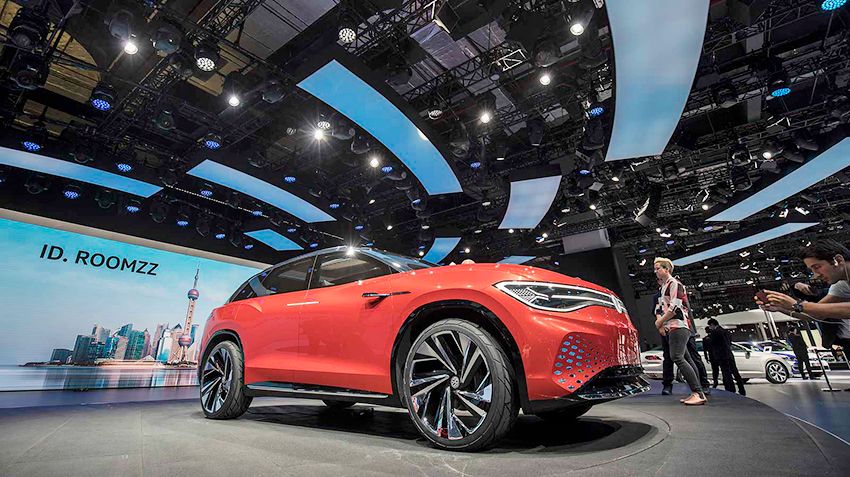The Chinese government, cancelling subsidies for electric vehicles, leads to failure of the entire car market of China

13 September 2019
Beijing should not shift all the costs for the introduction of electromobility on the shoulders of the automakers
Chinese analyst Yang Jian published in Automotive News China, another alarmist article about the sad prospects of the Chinese automotive industry under the fickle leadership of the Central government.
So, due to the fact that after the recent cuts in subsidies for the purchase of electrified vehicles (PEV), including electric vehicles (BEV) and plug-in hybrids (PHEV), their sales plummeted, the myth that the Chinese government can do wonders in the automotive industry, is destroyed.
It is time for regulators (from Beijing – ed.) to reconcile policy with reality and make some changes.
In 2014, the subsidy program PEV, which was previously used almost exclusively by a small group of cities to purchase the buses was extended also to cars and introduced throughout China.
The program was designed to help domestic automakers to circumvent global competition, to reduce harmful emissions from vehicles and at the same time to reduce China's dependence on imported oil.
Influenced by generous government subsidies, the PEV market is rapidly increased. So, in 2014 China surpassed the United States as the world's largest producer and market of electric vehicles and hybrids.
Government officials and the official media have called this line a "historic achievement".
However, conducted by the Ministry of Finance in 2016, the investigation has revealed rampant fraud on the part of local manufacturers participating in the incentive program. These companies demanded subsidies for the poor quality machines and accessories.
The study did not arouse enthusiasm of Beijing in respect of the subsidy programme, although it is from 2016 to 2018, and returned reluctantly to the subsidies, but imposed the phasing out of the program, defining the deadline for the end of 2020.
Before last year, the sellers BEV and PHEV were entitled to subsidies in the amount of 30-50% of the cost of the machine.
With the approaching deadline in 2020, the government was left with no choice but to reduce subsidies. From 26 March to 25 June this year the government increased the technological threshold (the reserve and specific charge capacity of the batteries – ed.) for electric vehicles, entitled to benefits, as well as to halve the subsidies for the PHEV.
The reduction of subsidies instantly triggered the explosive collapse of the market. The demand for electric cars and hybrids in China in August decreased by 16% after falling 4.7% in July – and this against the background of the continuing decline of market of new cars.
The drop in sales has exposed the fact that actually consumers experience a very small interest in electric cars and hybrids without a sufficient government subsidies for their purchase.
It also shows that no matter how strong and effective it was not government – it may not support even a local market forever.
Faced with growing budget problems, Beijing still intends to vigorously curtail PEV incentive program next year, which means the market will lose even more sales.
Nevertheless, Beijing is pushing carmakers to produce more such vehicles. In the framework of the trade "carbon credits" (emissions-CO2 – ed.) adopted in early 2019, automakers have to earn enough of these quotas, releasing a sufficient number of electrified cars, which should help to achieve national goals, equal to 10% of the new car market this year.
In 2020, the threshold will increase respectively to 12% of annual sales.
Expert opinion: This is crazy. Mandatory increase the number of produced electric vehicles and plug-in hybrids – a segment that is already struggling to stabilize profits, in the absence of government subsidies can only give one of excess supply combined with large financial losses.
PS Beijing goes against cherished them electromobility from the method of the carrot (excellent, by the way, triggered in the second half of the 2010s) to a method of a whip. That's just purely administrative methods (even any quotas recall, for example, the Ukrainian market of the 1990s), this market is not to rebuild – we need a skillful combination of a package of stimulating, limiting and restrictive measures for automobile manufacturers and for authorities and consumers, and it is that flexible, because what works for Beijing and Shanghai is no longer suitable in the County capitals and the village. Beijing in recent decades was famous for skillful maneuvering in the economy and balancing the interests of internal and external markets. Now, in shock from the beginning of the recession in the economy in General and industry in particular, Beijing is beginning to behave like a bull in a China shop and could easily collapse in the 2020s, something that was achieved in the 2010s in the field of electrification of the vehicle fleet of the country, and this in turn will strike the leading market for the electric globally and exacerbate the problem of planetary warming..
|
|
|
Element was not found.








